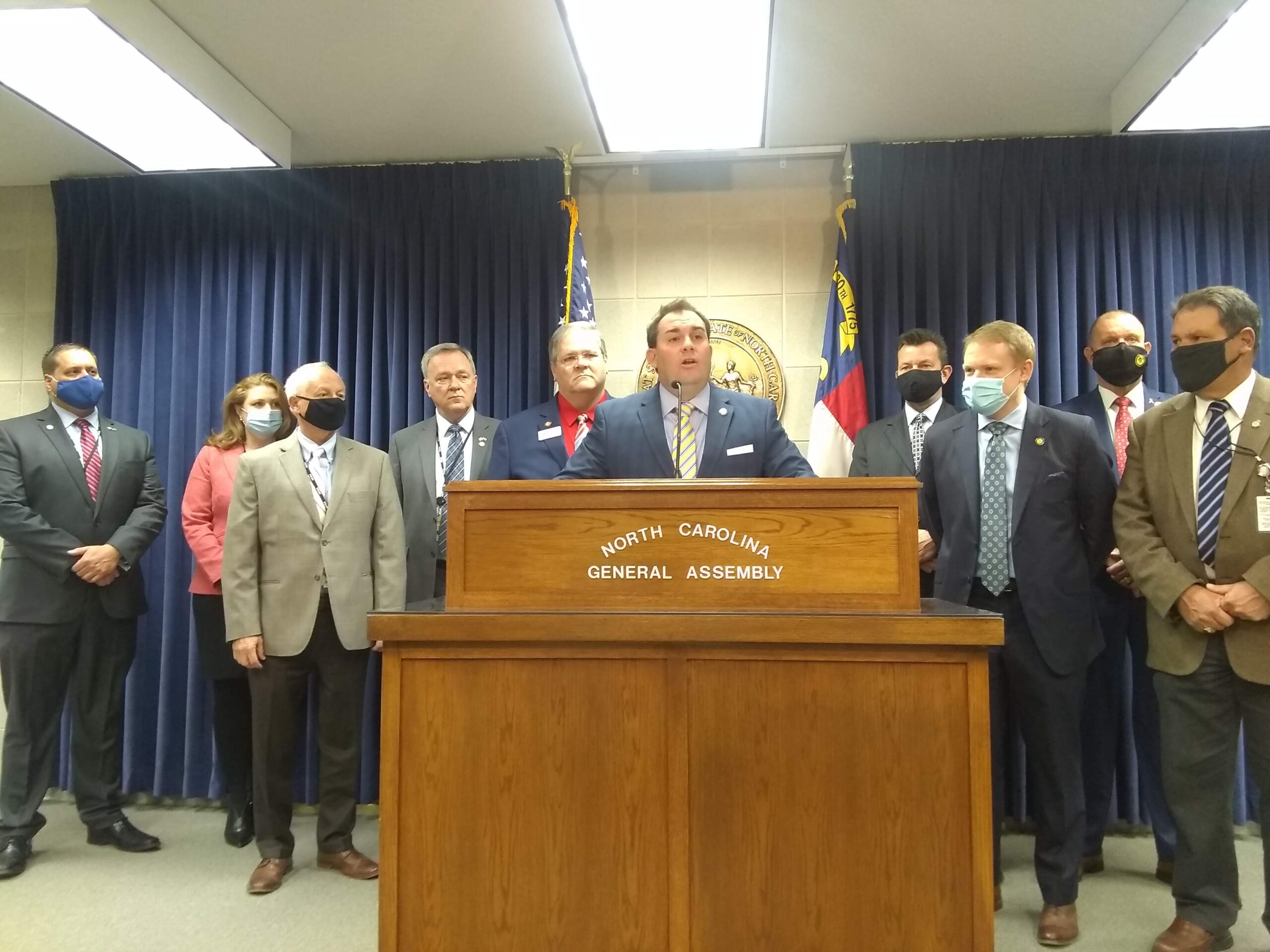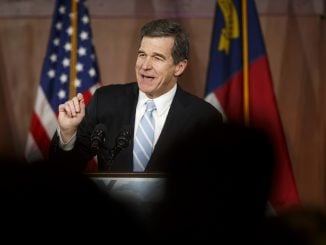
RALEIGH — N.C. House Republicans held a press conference on Wednesday, March 10 to unveil details about a bill that would rein in some emergency powers afforded to the governor.
Noting the day, House Majority Leader John Bell (R-Wayne) said, “Today makes one year – 365 days – since the governor put our citizens under a unilateral lockdown under his emergency orders.”
Bell said the governor has exercised absolute power controlling businesses, schools, and gatherings, and that the law as written did not forsee today’s challenges.
“Other states have taken actions to promote transparency, accountability, and oversight on executive actions. Simply put, no one person should have the unilateral authority to shut down schools, business, and livelihoods for over a year,” Bell added.
Co-sponsored by Bell, House Rules Chairman Destin Hall (R-Caldwell), and Reps. Keith Kidwell (R-Beaufort) and Tim Moffitt (R-Henderson), the legislation would require approval from a majority of the Council of State and concurrence for any statewide emergency declaration beyond 30 days. For legislative purposes, statewide would mean greater than 67 counties.
A summary document also alluded to shifting legal theories on the enactment of those orders, which led to former Lt. Gov. Dan Forest’s lawsuit against Gov. Roy Cooper last year.
The language of the bill states that a consensus within 48 hours of a majority of the Council of State must be reached before exercising power or authority requiring concurrence of the Council of State. The governor must document the contact and response of each member of the Council of State and it shall be a public record.
Another new section says that if concurrence fails with the issuance or extension of an emergency delcaration, the governor shall not issue the same or any other substantially similar declarations based on the same emergency.
Also, the govenror must notify affected local authories immediately upon exercising any of the powers or extensions.
Hall said that in the past year, Gov. Cooper had made some of the most consequential decisions a governor has ever made and has done with without a requirement to consult with any other elected official.
“We’ve got to build public trust in an emergency situation, and we need a deliberative process,” he added.
Bell said the bill would be filed later on Wednesday.
In a question and answer session, Hall reiterated that the measure was not about policies that have been enacted, but the process in which orders have been issued.
“Much of the Emergency Management Act requires Council of State approval. Gov. Cooper sought approval for some of his first orders, but when the Council of State asked questions, he switched legal arguments,” Hall said. “This about saying one person should not have the ability to shut down businesses, schools, and commerce in our state, and we have other statewide elected officials who should be consuluted.”



